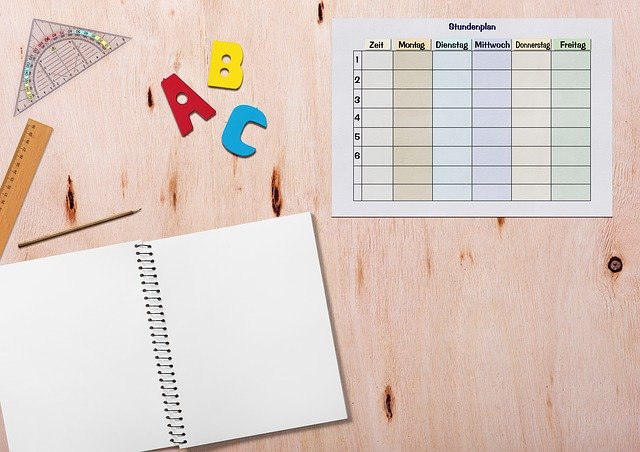
Time is a key element to life. Your skill at time management profoundly affects your success in life. Also, it will allow you more time for leisure. Complete more in less time using these time management tasks.
Buy a timer and use it. Set it for how much time you have to work. For instance, if your goal is to be able to do an hour’s work straight, set your timer for 15 minutes to start out with. Take a break and then increase the time on the timer. Repeat this until you work up to your desired length of time.
Use timers wisely. Setting a timer can help you to focus on the task at hand. Make sure that you incorporate breaks for your tasks.
If you are frequently late or behind, you should pay more attention to deadlines. When you see a deadline is coming, don’t let other priorities fail and get you behind on everything. On the other hand, if you keep up with deadlines appropriately, you’ll be able to avoid neglecting the larger matters and pace yourself.
Calendars are great tools for smart time management. Some individuals have a preference for paper calendars they physically mark things down on. Other people like using a calendar that’s electronic because they can be accessed through their phone or computer. Whatever method you prefer, using a calendar to keep your tasks straight will make you a much more effective time manager!
Figure out how to make the best use of your time. Think about the time needed for completing certain tasks and give yourself time to complete them. This gives you control over your life. If you wind up with some extra time, take a breather and relax a bit!
Start each day by filling in blanks in your schedule. You’re more likely to accomplish each goal when you know what is coming next. Make sure as you think through the day that you haven;t overextended yourself.
When developing your schedule, allow for interruptions. If you have appointment or tasks one after another and do not allow for traffic or an unexpected phone call, your entire day could be put off. A bit of planning can go a long way in time management.
When you are making your schedule, remember to account for interruptions that may happen. By scheduling some time for the unexpected, you can avoid your entire day being thrown off track. Plan for the interruptions to stay on task.
Plan out your days ahead of time. This is accomplished via a detailed plan of action or a to-do list for the next day. It will help you to stop worrying about it and start the new day ready to go.
Try ranking daily activities. Your day can be consumed by unimportant tasks. If you prioritize everything, you can use your energy getting important things done. Write your tasks down on a list in order of their importance.
Prioritize all of your tasks. Do not focus all of your attention on meaningless tasks. Task prioritization allows you to use your time and energy efficiently on the most important tasks. List your tasks from most important to least important; begin at the top.
If time management is causing you concern, take a close look at how it is being used. Make good use of your time to optimize results. Only take the time to read emails or your voice mail when you have allowed time for that. When you fall to these interruptions, you won’t get your tasks done.
Begin your day by planning your day. Take pen and paper and figure out what has to get done. Keeping a schedule everyday will improve the efficiency of your time usage.
Every time that you get up in the morning, take your time to plan out how your day will go. Write down everything you need to complete and how long you think it should take. By incorporating a schedule each day it will help you effectively manage your time.
If you need to work at maximum efficiency, make sure to close the door to your office. An open door signals that you are available. Closing the door offers immediate privacy. This will show the people around you that you mean business.
Look through your schedule. Can you cut anything on it? Can you give some jobs to someone else? A great skill to learn for time management is delegation. When you delegate a task to another person, you can let the other person finish the task, and you will not need to handle it.
Unless it’s absolutely necessity, do not answer your phone for either a text message or a call when you are working on something else. Your focus will become disrupted, and your task will ultimately take longer than it should. Wait until your task is complete to check your messages.
Do your hardest tasks first. You should do your tough tasks first and then slowly move on to the easier ones. This alleviates some of the pressure as you proceed to task which are more mundane. If you finish the hardest part of your day early on, then the remainder of your day is a breeze.
Always handles difficult tasks early in the day. The tasks that take longer should be done as early as possible. In this way, you can move to your less important tasks with a great deal of pressure lifted from your shoulders. Once you clear away the most challenging, intense tasks, you have more time to ease through the remainder of the day.
Make a list of what you must do in a single day, and then prioritize the individual tasks based on how important or urgent they are. Then start at the very top of this list, and work on down it. If you cannot remember all the tasks on your list, make a copy and carry it with you.
Consider signing up for a course on time management. They will teach you things that will help you use your time wisely. Some companies provide these management classes to their employees in order to help them succeed. If your employer is not willing to offer them, look at nearby community colleges and universities.
List your daily tasks in order of importance. This is an effective way to make sure your day is organized. Give some real thought to which tasks are absolutely essential and which are less important. Place them first on your list of things to do. This way, you can go down on your list towards what isn’t as important.
One good way to get all your tasks organized is to make a list. This helps you to prioritize your organizing. Think about the most critical things you need to accomplish in a day. Those should top the list. Then, work down the list until you get to the less important.
How much effort does each task require? Never spend time trying to do a perfect job on tasks that do not really matter. Devoting time to unimportant tasks is a bad idea. Keep your hardest work for the important jobs.
How much effort does each task require? A task that is of less importance does not need to be done perfectly. Do enough to get the job done adequately and move on. You time will be used better if you save your best effort to accomplish the most important jobs.
If your space is a mess, organizing it is a smart first step to time management. If you are digging around looking for things you need for a few minutes on an ongoing basis, that can easily mean you waste several hours over the course of a week! Create a space devoted to things you use daily. This will make you feel much more relaxed.
If you seem to have a problem with managing time, ensure your space is always organized. When you are searching for items, you are wasting time. Keep your daily needs organized and always in their places. This will help you save aggravation and time!
Time is something that everyone values. You can focus on the important things in life when you know how to manage work, household chores, projects, and your other duties. Use that advice that was given above to find the time you were missing.
Prepare your mind and spirit to take on the tasks ahead. Getting in the proper mindset can be hard, but with some practice, you can be prepared and stay focused. Simply commit to spending a specific amount of time on a task, and then do it!


